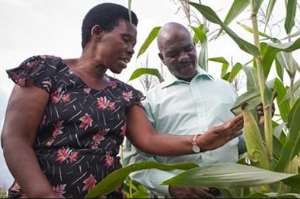
New book highlights need to update global agriculture trade rules to address changing reality
GENEVA – Global trade rules for agriculture must be updated to respond to changing global markets and address new challenges such as climate change, according to a new book by the International Centre for Trade and Sustainable Development (ICTSD).
Release of Tackling agriculture in the post-Bali context follows a deal yesterday at the World Trade Organisation, which set a July 2015 deadline for completing a work programme on the remaining Doha Round issues. The book presents new research and analysis on how the agricultural trade landscape has evolved since Doha was launched in 2001.
The study estimates that agriculture will account for half of the global gains from Doha Round reforms aimed at improving access to markets and cutting subsidies.
It also shows how markets for farm trade are changing fast. The import share of six key trading powers – Brazil, China, the EU, India, Japan, and the US – fell from around 58 percent in 2002-04 to just half of global imports in the 2011-13 period, due to booming import markets in Africa. Meanwhile, Brazil and India have consolidated their roles as major exporters.
Tariffs on farm goods have dropped since the Doha talks were launched, the book finds, with those in developing countries falling particularly steeply. Meanwhile, while trade-distorting agricultural subsidies have declined in the EU, Japan, and the US, they have increased in some large developing countries - causing farm support levels to converge between the two groups.
The book looks at how farm export restrictions can affect food security, and examines how new rules on these measures could help ensure that price spikes do not prevent consumers in poor food-importing countries from being able to access adequate food in times of scarcity.
"Any informed conversation ultimately needs to build on a sound understanding of this new global reality and its implications for future multilateral disciplines in agriculture," said Ricardo Meléndez-Ortiz, ICTSD's chief executive.
The full eBook can be downloaded by clicking here.
Editor's Note:The International Centre for Trade and Sustainable Development (ICTSD) is a nonpartisan think tank, based in Geneva, which – by empowering stakeholders in trade policy through information, networking, dialogue, well targeted research, and capacity building – seeks to influence the international trade system such that it advances the goal of sustainable development. www.ictsd.org




 Critics fear Togo reforms leave little room for change in election
Critics fear Togo reforms leave little room for change in election
 Flooding: Obey weather warnings – NADMO to general public
Flooding: Obey weather warnings – NADMO to general public
 Fire in NDC over boycott of Ejisu by-election
Fire in NDC over boycott of Ejisu by-election
 NDC to outdoor Prof Jane Naana Opoku-Agyemang as running mate today
NDC to outdoor Prof Jane Naana Opoku-Agyemang as running mate today
 Ejisu: CPP seeks injunction to stop April 30 by-election
Ejisu: CPP seeks injunction to stop April 30 by-election
 Dismiss ECG, GWCL, GACL bosses over losses – United Voices for Change tells gov’...
Dismiss ECG, GWCL, GACL bosses over losses – United Voices for Change tells gov’...
 Submit 2023 audited financial statements by May – Akufo-Addo order SOEs
Submit 2023 audited financial statements by May – Akufo-Addo order SOEs
 Current power outages purely due to mismanagement – Minority
Current power outages purely due to mismanagement – Minority
 ECG hoists red flag to fight Ashanti Regional Minister over arrest of General Ma...
ECG hoists red flag to fight Ashanti Regional Minister over arrest of General Ma...
 Mahama’s 24hr economy will help stabilise the cedi; it’s the best sellable polic...
Mahama’s 24hr economy will help stabilise the cedi; it’s the best sellable polic...
